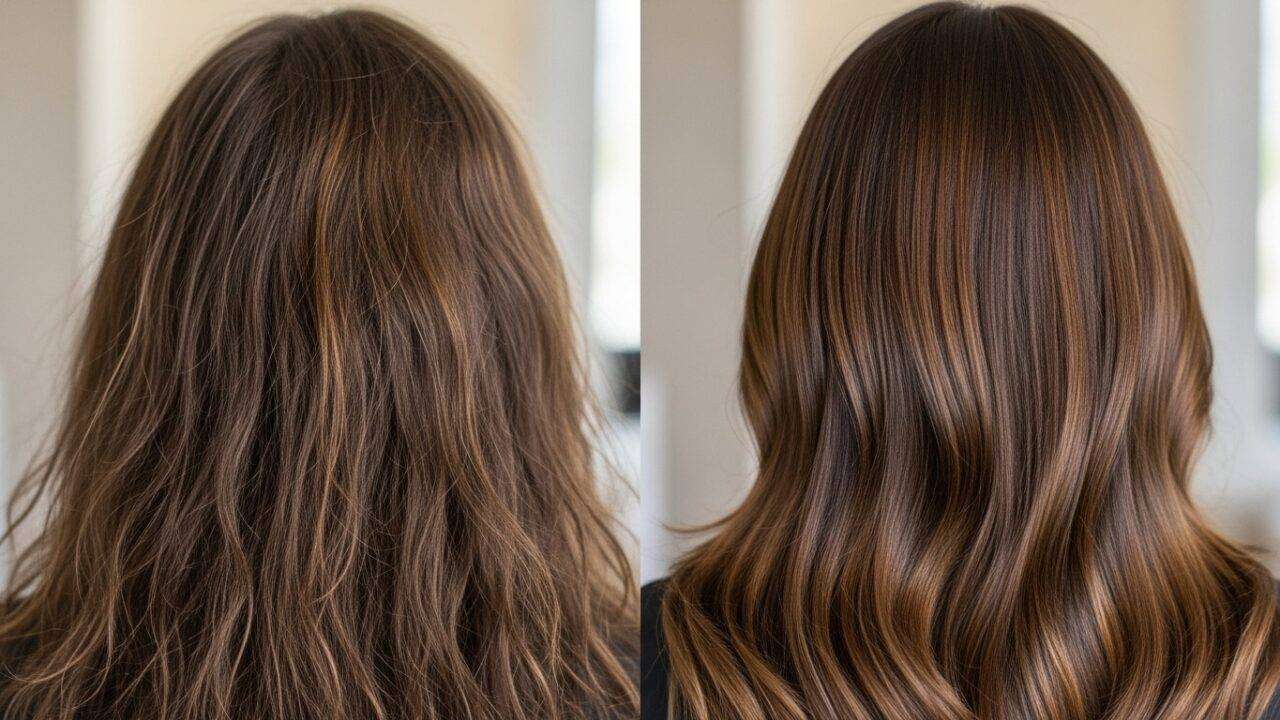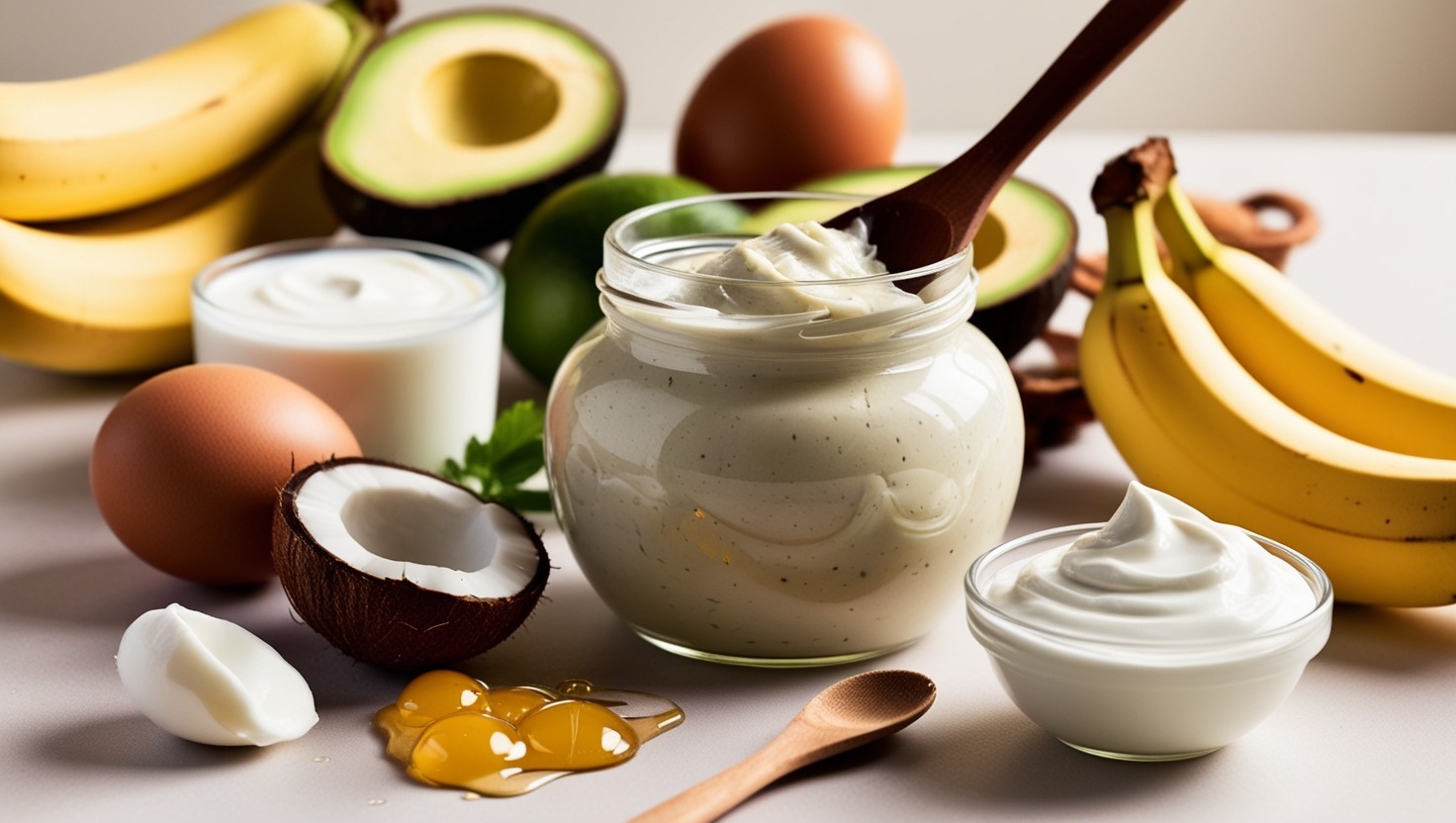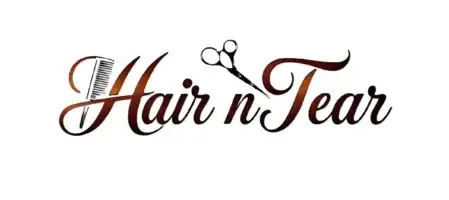Maintaining the health, strength, and shine of your hair depends on proper hair care. With its deep conditioning and nourishing properties, a hair masks can be an amazing treatment for damaged, oily, or dry hair. Although there are many store-bought solutions available, homemade hair masks provide an affordable, natural alternative that you can tailor to the demands of your hair by controlling the ingredients. We’ll discuss the advantages of hair masks in this blog and offer natural, do-it-yourself hair mask recipes that you may try at home.
What Is a Hair Mask?
A hair mask is a thorough hair treatment that helps to repair damage, replenish moisture, and enhance general hair health. In contrast to ordinary conditioners, hair masks are made with concentrated substances that hydrate and nourish the hair shaft from the inside out. Hair masks, which are usually used for a longer period of time, are a great way to treat a variety of hair issues, including dullness, frizz, dryness, and breakage.
Why Use a Hair Mask?

A hair mask can aid in restoring the natural beauty of your hair, regardless of the damage it has sustained from chemicals, heat styling, or environmental factors. The following justifies the benefits of adding a hair mask to your routine:
Deep Hydration:
Hair masks add hydration to brittle, dry hair, leaving it silky and easy to handle.
Repair Damage:
Components found in hair masks aid in fortifying hair strands and mending damage brought on by coloring, heat styling, and environmental stresses.
Improve Shine:
Regular usage of hair masks helps restore your hair’s natural shine, giving it a vibrant, healthy appearance.
Promote Hair Growth:
Certain components found in hair masks, such as avocado and coconut oil, are abundant in vitamins and minerals that encourage hair development and shield it from breaking.
Now that you are aware of the advantages, let’s get started with some diy hair mask recipes made with simple, everyday products from your kitchen.
DIY Hair Mask Recipes for Every Hair Type
Avocado and Honey Hair Mask for Dry Hair
For dry, damaged hair that needs more moisture, this mask is ideal. Honey is a natural humectant that helps to retain moisture, while avocados are high in good fats.
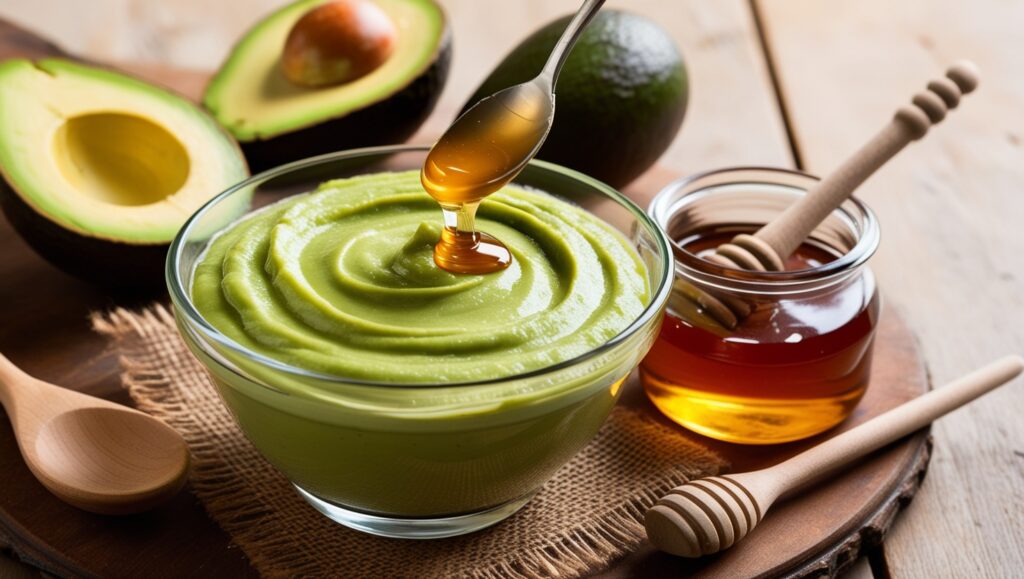
Ingredients:
- 1 ripe avocado
- 2 tablespoons honey
- 2 tablespoons olive oil
Instructions:
- Mash the avocado in a bowl until smooth.
- Add honey and olive oil, mixing well to form a paste.
- Apply the mixture to your hair, focusing on the ends.
- Leave it on for 30 minutes, then rinse with lukewarm water and shampoo as usual.
Benefits:
Your hair is nourished and hydrated by the fatty acids in avocados, and it is sealed in moisture with the help of honey, leaving it silky and glossy.
Coconut Oil and Egg Hair Mask for Damaged Hair
Eggs are packed with proteins that strengthen hair, while coconut oil deeply moisturizes and repairs damaged strands.
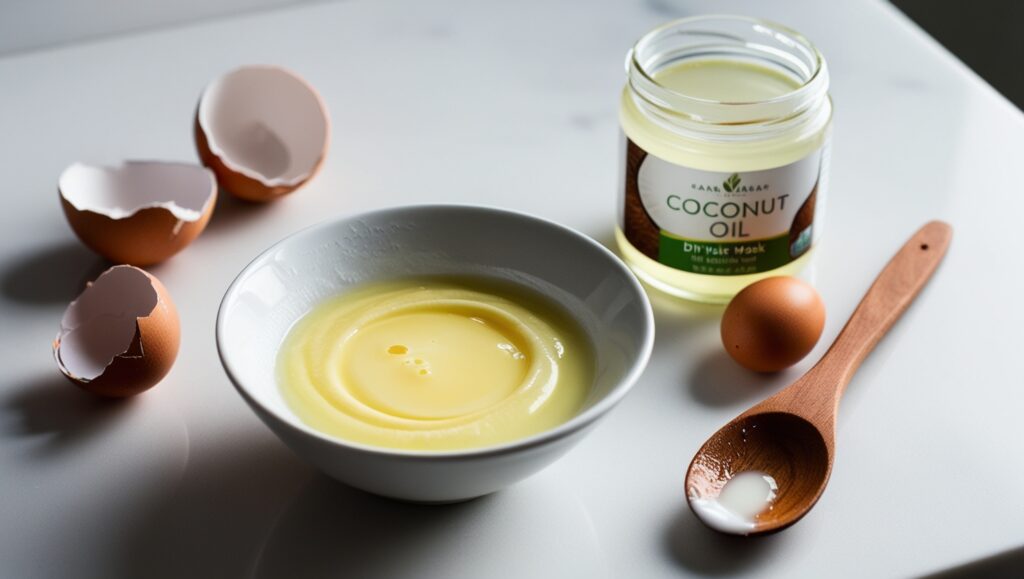
Ingredients:
- 1 egg (use only the yolk for dry hair and the white for oily hair)
- 2 tablespoons coconut oil
- 1 tablespoon honey (optional)
Instructions:
- Whisk the egg and mix it with the coconut oil and honey.
- Apply the mixture to your scalp and hair.
- Cover your hair with a shower cap and leave the mask on for 20-30 minutes.
- Rinse thoroughly with cold water to avoid cooking the egg in your hair.
Benefits:
This hair mask provides intense hydration, repairs damage, and strengthens your hair from root to tip.
Banana and Yogurt Hair Mask for Frizzy Hair
Yogurt is a fantastic source of lactic acid, which cleanses and nourishes the scalp, while bananas are high in potassium, which helps to minimize frizz and enhance elasticity.
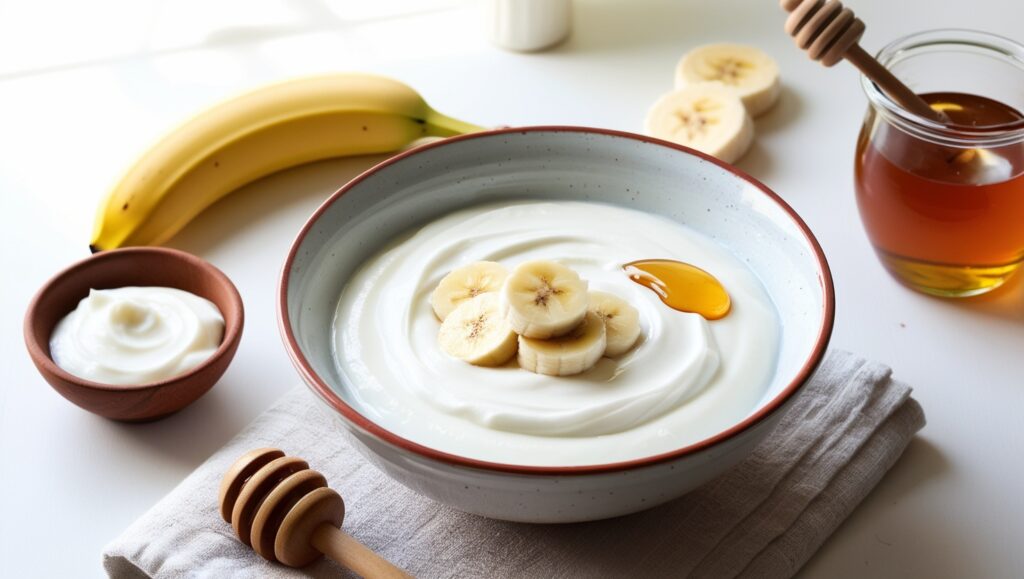
Ingredients:
- 1 ripe banana
- 1/2 cup plain yogurt
- 1 tablespoon hone
Instructions:
- Mash the banana until it’s smooth, then mix it with yogurt and honey.
- Apply the mixture evenly to your hair, especially the ends.
- Leave it on for 30 minutes, then wash your hair with a mild shampoo.
Benefits:
This mask helps to control frizz, smoothens your hair, and adds natural shine.
Oatmeal and Almond Milk Hair Mask for Itchy Scalp
Almond milk nourishes and hydrates hair, while oatmeal calms the scalp and helps ease itching.
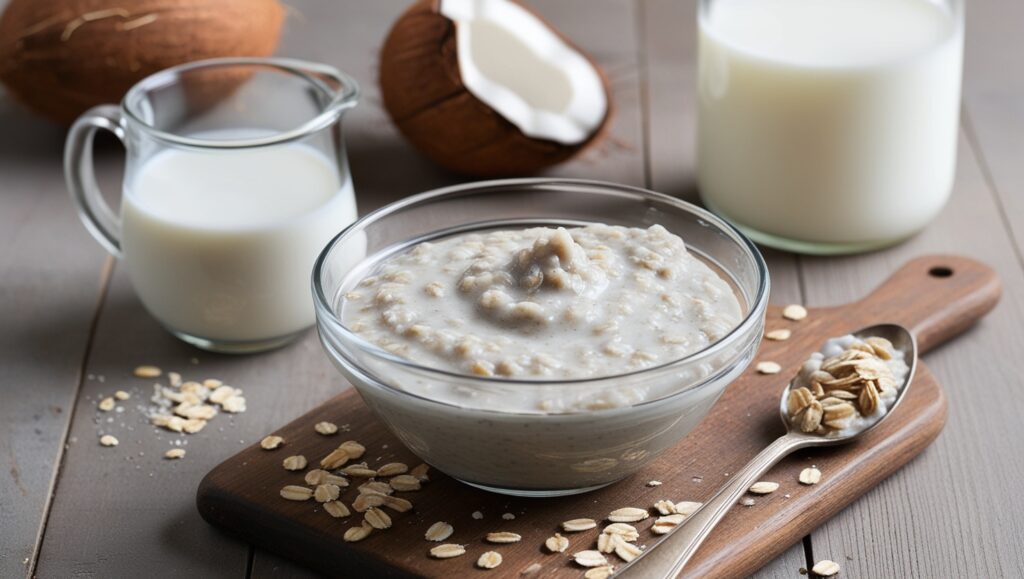
Ingredients:
- 1/2 cup oatmeal (finely ground)
- 1/2 cup almond milk
- 1 tablespoon coconut oil
Instructions:
- Blend the oatmeal and almond milk together until smooth.
- Add coconut oil to the mixture and apply it to your scalp and hair.
- Leave it on for 20-30 minutes, then rinse and shampoo as usual.
Benefits:
This hair mask moisturizes the hair, soothes sensitive scalps, and encourages healthy hair development.
Aloe Vera and Olive Oil Hair Mask for Oily Hair
Olive oil supports the preservation of the hair’s natural moisture balance, while aloe vera is well-known for its calming and purifying qualities.
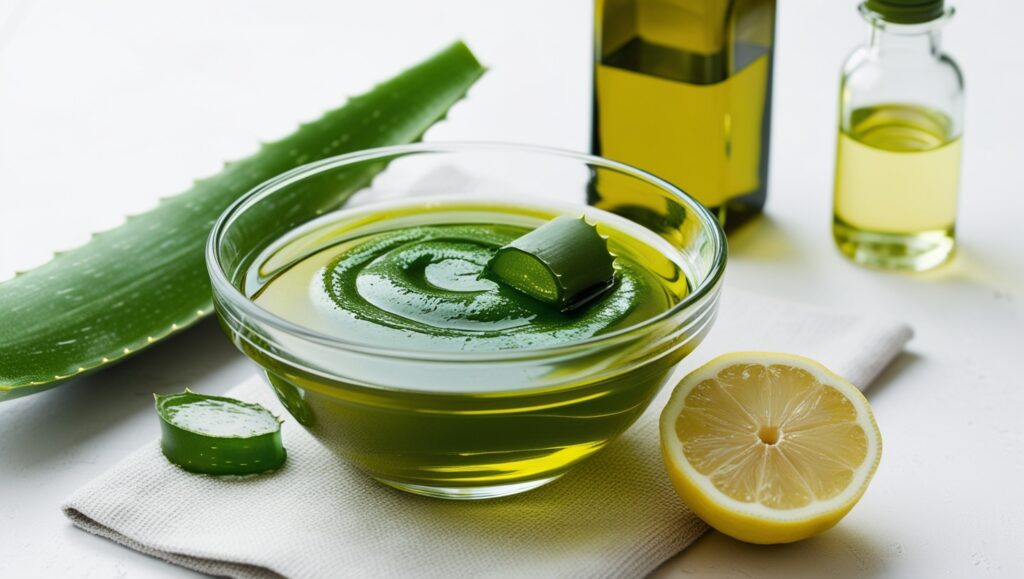
Ingredients:
- 1/4 cup aloe vera gel
- 2 tablespoons olive oil
- 1 tablespoon lemon juice
Instructions:
- Mix aloe vera gel with olive oil and lemon juice.
- Apply the mixture to your scalp and hair, focusing on the roots.
- Leave it on for 20-30 minutes, then rinse thoroughly with water and a mild shampoo.
Benefits:
This mask helps to balance excess oil production, soothe the scalp, and leave your hair feeling soft and smooth.
How Often Should You Use a Hair Mask?
The type of hair you have and the particular issues you’re trying to solve will determine how often you use a hair mask. Using a hair mask once or twice a week can help repair damage and restore moisture to dry and damaged hair. It can be enough to use a hair mask once every two weeks if your hair is typical or oily. Remember that using too many masks could make your hair appear greasy, so it’s critical to strike the proper balance for your particular hair type.
Tips for Applying Hair Masks
To get the most out of your DIY hair mask treatments, follow these simple tips:
Start with Clean Hair:
Apply a hair mask to moist, thoroughly washed hair for optimal effects. This makes it possible for the mask to enter the hair shaft more successfully.
Focus on the Ends:
Apply the mask mostly to the lower portion of your hair if you have dry ends and oily roots.
Use a Shower Cap:
Use a warm towel or shower cap to cover your hair to generate heat and enhance the benefits of the hair mask by allowing the ingredients to seep deeper into the hair.
Rinse Thoroughly:
Rinse your hair thoroughly with lukewarm water to get rid of all the residue after the suggested amount of time.
CONCLUSION:
Using natural products that you usually possess in your kitchen, DIY hair masks are a great method to restore and revive your hair. Every hair mask recipe addresses a different issue, such as frizz, damage, dryness, or greasy scalp. Over time, adding hair masks to your weekly regimen can result in hair that is healthier, shinier, and easier to manage. Discover the advantages of natural hair care by trying these do-it-yourself recipes!
You may achieve stronger, healthier hair without spending a fortune on salon services if you use these easy hair mask treatments on a regular basis.
